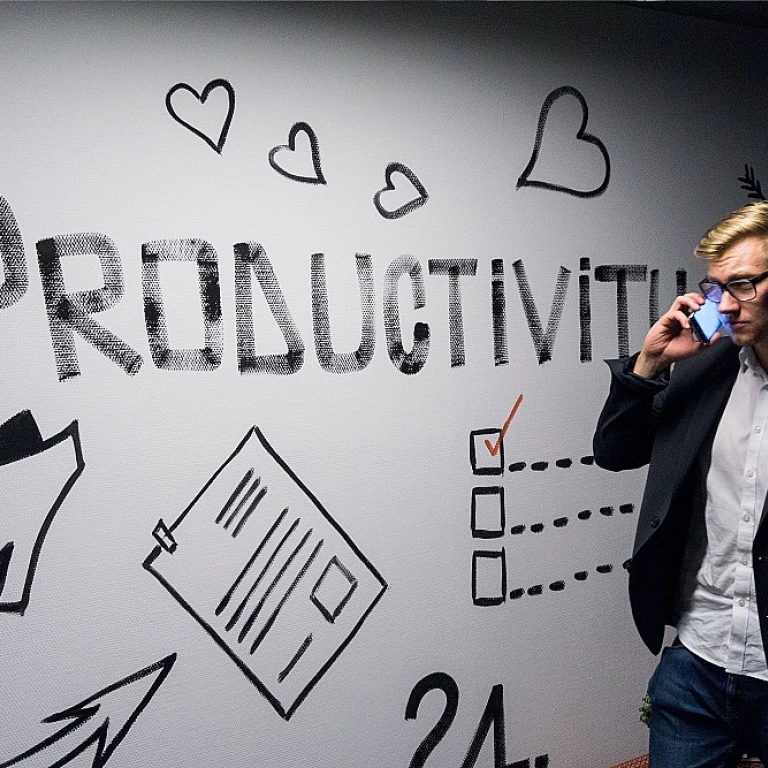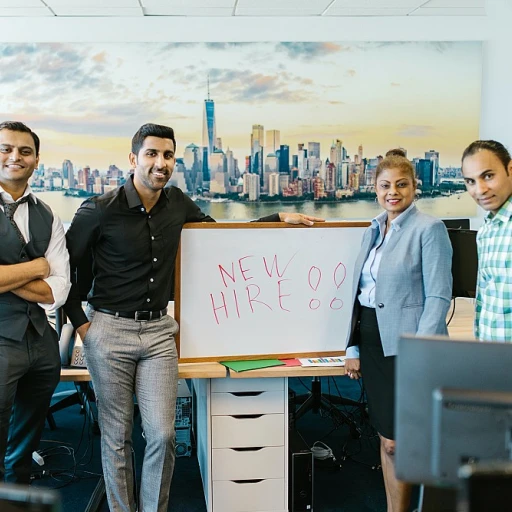
Understanding DEIA Training
Decoding the Core Elements of DEIA Training
In today's ever-evolving workplace environment, fostering a culture of diversity, equity, inclusion, and accessibility (DEIA) has become paramount. DEIA training serves as the backbone for organizations striving to create an inclusive workplace that not only embraces diversity but actively dismantles unconscious bias and other barriers to inclusion. Such training programs are essential not just for employee growth but for the organizational culture as a whole.
The concept of DEIA is deeply intertwined with promoting equal opportunities across diverse and inclusive work environments. As organizations and employees work towards embedding these principles into daily practices, DEIA training emerges as a structured approach to inculcating these values. Training programs should cover key elements like understanding and identifying cultural bias, creating accessibility DEIA strategies, and executing equity inclusion initiatives.
While it may seem like a monumental task, integrating DEIA principles can significantly enhance decision-making processes and facilitate a more equitable distribution of responsibilities and opportunities among diverse employees. As suggested by some best practices, organizations that invest in robust DEIA training are better equipped to navigate the complexities of modern workplace dynamics.
Engaging in DEIA training represents an organization's commitment to affirmative action and proactively combating discrimination. This commitment not only aligns with executive orders that prioritize these principles but also signals a dedication to crafting an inclusive workplace that values every employee's contributions.
For those seeking further guidance on embracing diversity and inclusion within their professional journey, understanding the steps to embark on a midwifery career can offer valuable insights into how professional mentoring can be enriched by DEIA training principles.
The Role of DEIA in Professional Mentoring
Integrating DEIA Principles into Mentorship
In the context of professional mentoring, the integration of Diversity, Equity, Inclusion, and Accessibility (DEIA) principles is not just an added benefit but an essential component that shapes the future of workplace culture. Establishing a diverse and inclusive work environment involves more than mere representation; it demands an active effort to create opportunities and address systemic barriers. DEIA principles help mentors and agencies construct programs that acknowledge and counter unconscious biases, aiding both mentors and mentees in fostering a culture of equity inclusion.
Mentors equipped with DEIA practices can drive substantial change by promoting inclusion and accessibility within their organizations. When mentors introduce DEIA as a core component of their strategy, they help ensure all employees feel valued and heard, enabling a more diverse inclusive environment. Actively addressing these principles in development programs allows for the identification of personal and collective narratives, fostering a process of inclusion accessibility.
A well-structured DEIA training program not only prepares mentors for recognizing systemic inequities but also empowers them to become advocates for change. Exposure to situations that challenge existing preconceptions enables mentors to engage in constructive decision making that benefits the entire organization.
To further explore how DEIA principles can be effectively incorporated into mentorship roles, consider the insights shared by experts on the role of a patient care assistant in a professional context. The case emphasizes how embracing cultural diversity and accessibility enhances a mentor's capacity to support diverse teams.
Benefits of DEIA Training for Mentors and Mentees
Enriching the Mentoring Experience Through DEIA Training
Incorporating DEIA (Diversity, Equity, Inclusion, and Accessibility) training into professional mentoring programs offers a wealth of benefits for both mentors and mentees. As organizations strive to cultivate a diverse and inclusive workplace environment, DEIA training becomes a crucial pillar in supporting these efforts. It helps mentors develop a more profound understanding of diversity and unconscious biases, equipping them to foster a more inclusive workspace. For mentors, DEIA training enhances their cultural competency, offering them perspectives that lead to better decision making and improved interpersonal relationships. This training helps mentors become more aware of unconscious biases that may affect their interactions with mentees. Consequently, mentors are able to create more supportive and equitable mentorship experiences, contributing positively to the overall workplace culture. Mentees, on the other hand, benefit significantly from these inclusive advances as well. With DEIA principles at the core of mentoring, mentees gain access to greater opportunities for growth in a supportive environment where cultural differences are respected and valued. This inclusive environment fosters greater creativity and innovation, as diverse perspectives are heard and contributions are recognized. By learning from mentors who are trained in DEIA, mentees are better equipped to navigate and influence an equitable and inclusive work environment. Moreover, organizations that prioritize these best practices often witness improved employee engagement and satisfaction. An emphasis on DEIA leads to a more inclusive and supportive corporate culture, resulting in increased retention and productivity among employees. In this way, the investment into DEIA training programs not only supports individuals but strengthens the organization as a whole. The integration of DEIA training in mentoring programs is part of a broader movement towards fostering workplaces that are both diverse and inclusive. The benefits extend far beyond individual relationships, contributing to a dynamic organizational culture that values equity and accessibility. For more insights on the transformational power of virtual mentoring, consider exploring the benefits of virtual professional mentoring.Challenges in Implementing DEIA Training
Overcoming Barriers in DEIA Training Implementation
Implementing DEIA training in professional mentoring programs is not without its challenges. As organizations strive to cultivate diverse and inclusive workplaces, they encounter several hurdles that need to be addressed to reap the full benefits of such initiatives. First, there's often resistance to change within the workplace culture. Employees and leaders alike may struggle to adapt to new practices or principles introduced through DEIA training. Overcoming this resistance requires a strategic approach that involves clear communication about the benefits of diversity, equity, and inclusion. Highlighting how a more inclusive workplace can lead to improved employee satisfaction and productivity can help mitigate pushback. Another challenge is addressing unconscious bias that exists within organizations. Unconscious bias can hinder decision making and prevent equitable opportunities for all employees. Providing comprehensive training programs aimed at identifying and reducing these biases is crucial. DEI training, when executed effectively, can make a significant impact on awareness and provide employees with practical tools to foster a more inclusive work environment. Moreover, ensuring accessibility in DEIA training is essential. Organizations should consider the diverse needs of their workforce, including language differences and varying levels of technological proficiency, to ensure everyone can participate fully in the training programs. Inclusion accessibility must be prioritized to guarantee that the content is comprehensible and applicable to all employees. Cultural differences also present a challenge, as global organizations need to tailor their DEIA initiatives to respect and integrate diverse cultural perspectives. This requires sensitivity and adaptability within training programs to avoid one-size-fits-all solutions that may not resonate across different organizational contexts. Incorporating cultural diversity and bias awareness into training programs can enhance the effectiveness and relevacy of the communication. Finally, measuring the success of DEIA training programs is complex, as improvements in diversity inclusion and workplace culture evolve over time. Establishing clear metrics and goals from the outset can help organizations track progress and adjust strategies as needed. Regular feedback and evaluation cycles are essential to ensure that DEIA training remains aligned with organizational objectives and reflects best practices in fostering an inclusive workplace. Addressing these challenges is critical for the successful implementation of DEIA training in professional mentoring. By recognizing and proactively tackling these barriers, organizations can create a more equitable and diverse work environment that supports the growth and development of all employees.Case Studies: Successful DEIA Integration in Mentoring
Real-World Success in DEIA Mentoring Programs
Several organizations have successfully integrated DEIA training into their professional mentoring programs, leading to enhanced inclusion and a more equitable workplace culture. These case studies provide valuable insights and best practices for others seeking to implement similar initiatives.- Cultural Awareness Workshops: One organization introduced cultural awareness workshops as part of their mentoring framework. This initiative helped employees recognize unconscious bias and fostered a more diverse and inclusive work environment. The workshops were designed to improve understanding of diverse cultural backgrounds, thus promoting a more inclusive workplace culture.
- Mentor-Mentee Pairing with a DEIA Focus: Another company established a structured program where mentors and mentees were paired based on shared DEIA goals. This approach motivated employees to embrace diversity, equity, and inclusion in their personal and professional lives. By focusing on shared DEIA objectives, both mentors and mentees experienced enhanced career growth opportunities.
- Equity Inclusion Training Programs: In a different organization, a comprehensive equity inclusion training program was integrated into their mentoring efforts. The program included modules on decision-making practices that acknowledge diversity and promote equity. This training helped create a supportive environment for underrepresented groups, leading to improved employee satisfaction and retention.
- Inclusion Accessibility Initiatives: Some companies have prioritized accessibility DEIA initiatives as part of their mentoring efforts. By addressing barriers in the workplace, these organizations ensure all employees have the opportunity to participate fully in their work environment. Such initiatives have been crucial in creating a diverse and inclusive work culture.
Future Trends in DEIA and Mentoring
Projecting the Evolution of DEIA in Mentoring
The trajectory of DEIA (Diversity, Equity, Inclusion, Accessibility) within professional mentoring is set to be transformative in the coming years. As organizations continue to prioritize inclusive work environments, DEIA training programs are expected to evolve, driving new opportunities for employees across various industries.
One of the most significant trends is the integration of technology in mentoring programs. Virtual and AI-driven platforms are becoming valuable tools for delivering DEIA training, making it more accessible to diverse groups. This technological evolution not only helps in overcoming geographical boundaries but also assists in addressing unconscious bias by providing a wide array of perspectives and insights.
Another trend is the increasing recognition of intersectionality in diversity training. As workplace culture shifts towards understanding the complexities of individual identities, mentors will require training to navigate these multifaceted dynamics. This intersectional approach will aid mentors in creating more supportive and inclusive environments for their mentees.
Executive orders at the governmental level are likely to further encourage organizations to implement stringent DEIA policies. This top-down approach can inspire a culture of best practices within businesses, ensuring that diversity and equity become foundational elements of decision making.
Moreover, organizations are expected to focus on measuring the impact of their DEIA initiatives. By gathering data and analyzing the effectiveness of training programs, companies can refine their strategies to enhance inclusivity and accessibility within the workplace. Programs that demonstrate tangible benefits for both mentors and mentees will be key in establishing standards across the board.
In conclusion, as DEIA continues to be a pivotal aspect of professional mentoring, its future within organizations promises to be both dynamic and essential. By embracing these evolving trends, firms will not only foster an inclusive workplace but also champion a culture that reflects the diverse and equitable values of the modern workforce.













